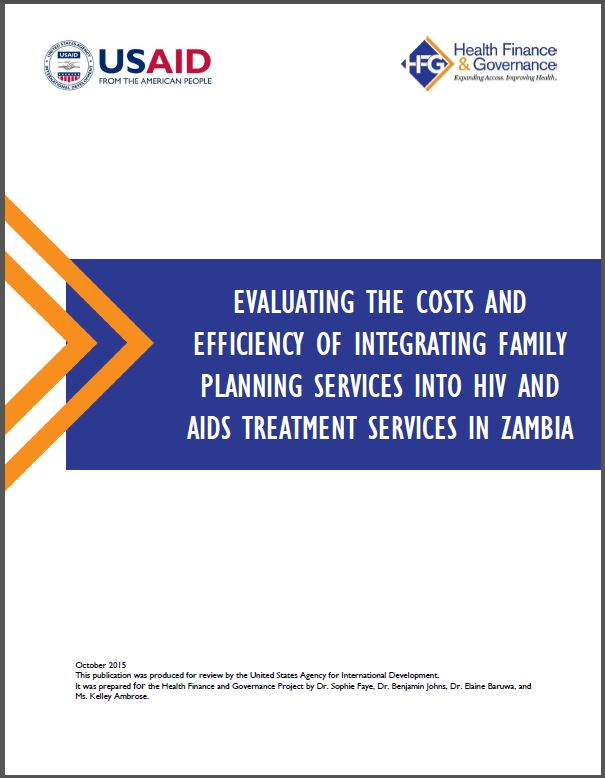Evaluating the Costs and Efficiency of Integrating Family Planning Services into HIV and AIDS Treatment Services in Zambia
Categories: Family Planning and Reproductive Health, HIV/AIDS, Publications
Resource Type: Report
Authors: Sophie Faye, Benjamin Johns, Elaine Baruwa, Kelley Ambrose
Published: October 2015
Integrating the delivery of health services is viewed as a priority in the fight for an AIDS-free generation, because this integration has the potential to improve access to HIV, family planning (FP), and other services and provide continuity of care for those living with HIV.
In particular, providing FP services to HIV-positive individuals as part of their health care can address some of the unique needs of this population, and can improve their overall well-being. In addition, such integration may make health service delivery more sustainable by increasing the efficiency with which resources are used, though evidence demonstrating the impact of integration on efficiency is limited. An initial review of the existing literature found qualitative evidence of increased efficiency from integration, at the programmatic level; but costing and cost-effectiveness evidence are lacking. Studies on integration often focused on measurement of outputs without necessarily considering the inputs required to obtain those outputs.
At the request of USAID’s Office of HIV/AIDS and the USAID Zambia mission, the Health Finance and Governance (HFG) project conducted a study examining the costs and efficiencies involved in integrating family planning and antiretroviral therapy (ART) services. The specific objectives of the study were to:
- Propose indicators that can measure the performance of the integrated programs with respect to efficiency, and assess their practical feasibility
- Quantitatively assess the relative efficiency of different models of integration of HIV and FP services, using the defined indicators
- Qualitatively identify potential barriers and facilitators to efficiency improvement
HFG worked with the FHI 360-led Zambia Prevention Care and Treatment Partnership (ZPCT-II) project and the Centre for Infectious Disease Research in Zambia (CIDRZ). These implementing partners’ programs supported the sites where FP services had been integrated into HIV clinics.
Download




